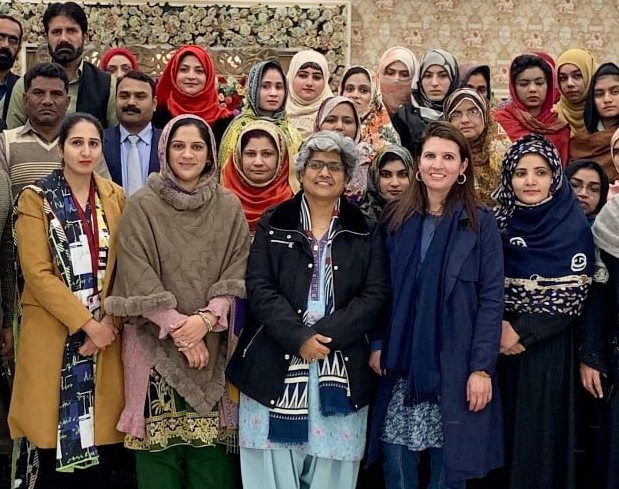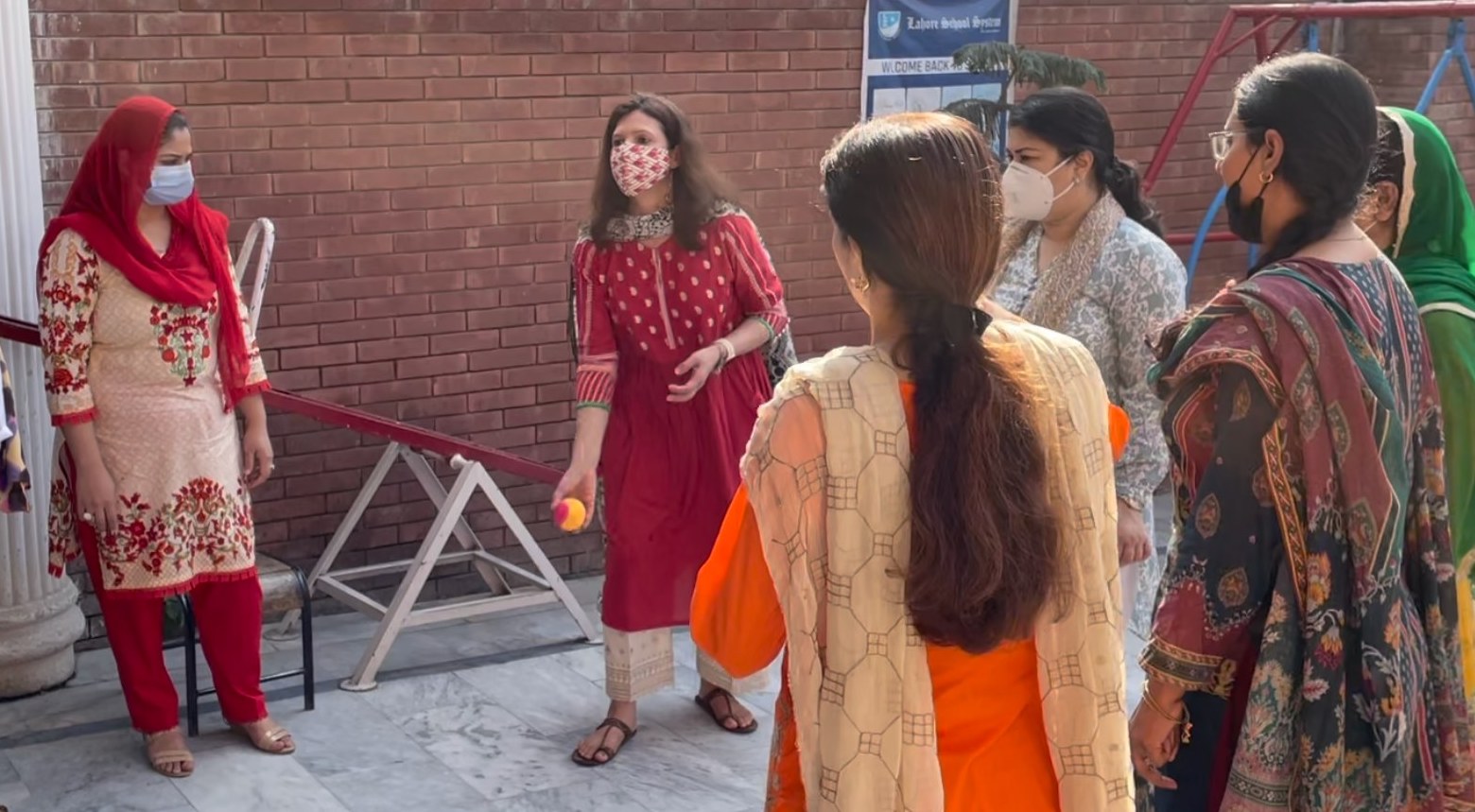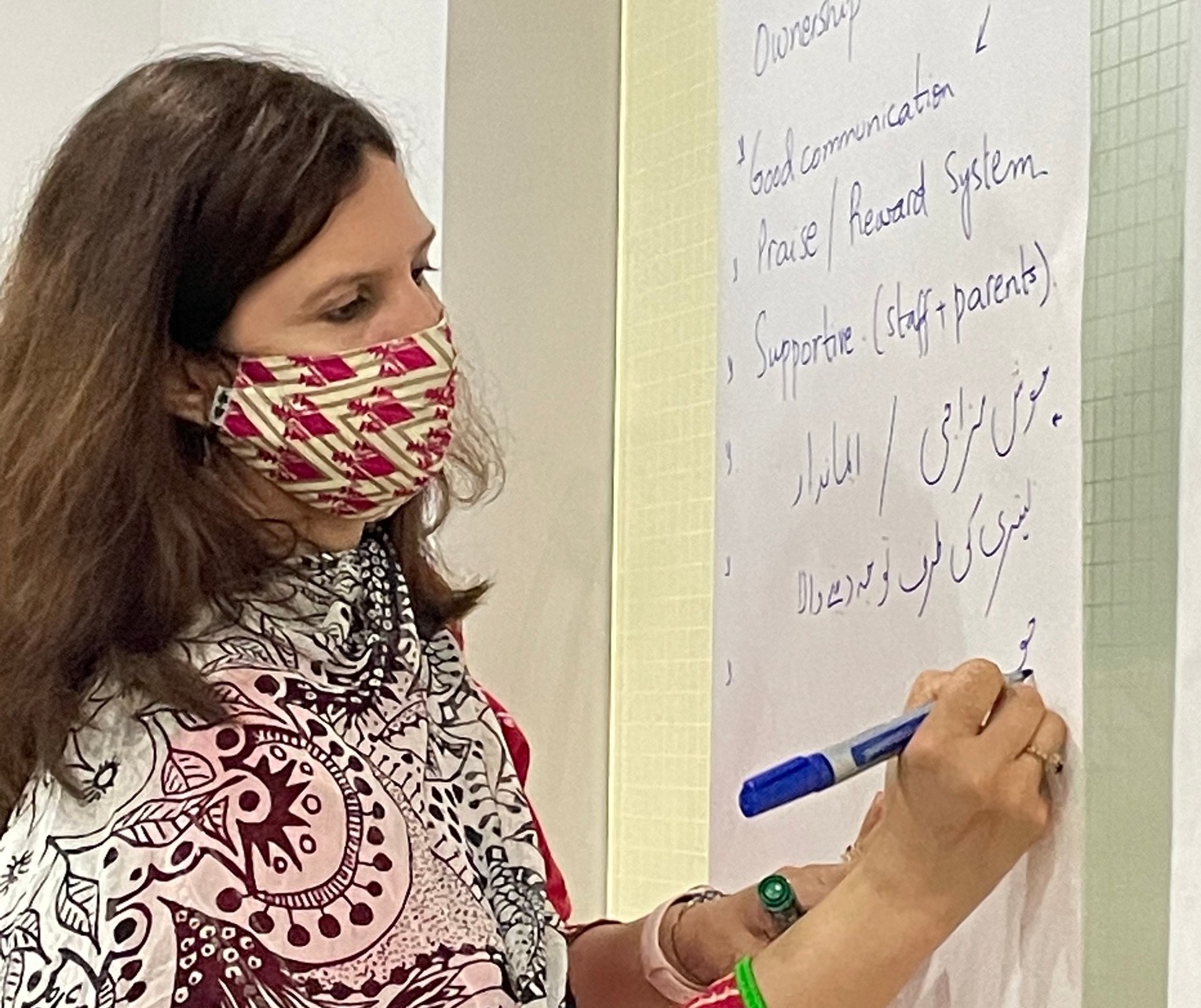Pakistan Education Specialists Spotlight: Opportunities to impact children’s education in Pakistan

If you track global education trends at all, you likely know that Pakistan is among countries with the highest numbers of out-of-school children. And as UNICEF highlights, boys outnumber girls at every stage of education.
Opportunity EduFinance is committed to working in countries with the highest need to create more school seats and give more children – including girls – the opportunity at a quality education. That means we see the need in Pakistan as a massive opportunity for impact by linking schools and parents to capital, and offering training to school leaders and teachers.
After doing some initial piloting of our EduQuality program in Pakistan pre-COVID-19, the team is gearing up to launch the full 3-year school development program in Punjab later this year. We hope to engage more than 100 schools, working directly with the school leaders on skills necessary to run a sustainable school, and with teacher mentors on classroom best practices and how to coach their peer teachers.
This incredibly challenging work takes a unique blended skill set to deliver. Our Education Specialists that work with schools need professional training and practical experience as educators, while also bringing skills as an effective community mobilizer, dynamic trainer, and personable coach.
As we prepare for the upcoming launch of our new EduQuality Pakistan program, we wanted to hear from our experienced Pakistan Education Specialist team about their backgrounds, work with schools and also their perspectives on the changing landscape of education in Pakistan.
Rabia Shafi and Azra Qazi, thank you for taking the time to speak with us!
What made you want to work in education?
Rabia – I never wanted to be a teacher or thought about it. In our society some professions are considered appropriate for girls because they are considered respectable. My father was of the view that teaching was a safe, respectable job so I joined this profession. Now I love teaching.
Azra - I always wanted to start working and be in the practical field as soon as possible. I started a 9-5 job which didn’t work for me so I asked what should I do to continue my education as well as working. I thought teaching was a profession for aliens, I could not visualize myself into it but nevertheless I started working in a school. First I was given grade 2 and I thought it was bonkers looking at such tiny people in front of me. Down the road it seemed to be the only things I enjoyed were linked to education.
What led you to become education specialists?
Rabia – I was brought into management after one year of working as a teacher. I started monitoring teachers and other students and I started holding training meetings for all staff. There was a need to tell them things so my journey from teacher to trainer grew and I started attending more trainings myself to know more and teach other teachers more.
Our job title says ‘Education Specialist,’ but I still want to know more about so many things – it’s an ongoing process to keep updating ourselves. I go through an imposter syndrome crisis sometimes, but I keep trying to keep up with everything I feel I should know.
Azra – Education Specialist is a huge canvas. You often start somewhere and land somewhere else. Being a specialist in certain fields, I started in teaching and learning and then added management skills and then further went into professional development. Most of my career is linked with formal education but I have also started to work in informal education with refugees. There was an element of research throughout and what I like is that you can always continue learning.
You mentioned how the title ‘education specialist is a huge canvas.’ What do you think are the most important parts of this Education Specialist role with the EduQuality program?
Rabia – Doing teacher mentor training is going to create a big impact. By training teacher mentors, change can be delivered quicker directly to the students. Teacher mentors train teachers so they can be implementing new methods within a month. This process is gratifying as we can see the change quickly.
Azra – What is important as a facilitator is how are the schools going to benefit? School visits, cluster visits, and trainings and helping with their School Development Plans are all really important. Our role is crucial is how can we facilitate and what access can we offer them to a better future.
How do you establish a good relationship with a school leader?
Rabia - Azra has an outstanding memory and can remember each person’s name. Other than that we have bonding activities where we work together in groups on educational topics with fun activities. The most important thing is at the end of the day whether they find the content valuable.
Azra – They connect if they find you have something of value. The first thing is that they need to know that someone is there to help them and that they need help. They are often more interested in what we can give them financially so we have to break the barrier and show them we can relate to their problems and find solutions or a guide to help them. To have a relationship you have to show what you can give and that you value their presence in meetings.
Based on your experience with schools, and from a macro perspective, what are the most pressing challenges facing schools in Pakistan and how are they changing?
Rabia - The school leaders often don’t know how to run a school and the teachers often don’t know how to teach. So, the school is just asking students to copy information. The biggest problem is professional development for teachers and the general knowledge required to run a school. Because inexperienced teachers often just make students rote learn without giving any practical information and application. There is a lack of availability of trained teachers, and students drop out early because they do not find the classes interesting.
Azra - In Pakistan, we have a private and a public-school sector, and both have challenges. In both we have issues with policy making and also there are security issues, although these have gotten better. The standard national curriculum is a real challenge because school leaders are in a grey cloud where they do not know how to use it. We have four final exam streams - Pakistan matriculation, EdExcel, Cambridge and IB, all alongside each other. For example, my daughter is doing her medical MCAT’s but 60% is from the matriculation stream which makes it hard to understand why she also had to sit A-Levels. There is a lack of vocational schools and there are issues with how many girls attend school as well as how to get children back to school.
Rabia - The examination system keeps repeating the same questions and students have to answer specific questions they have memorized, and nothing has changed in terms of paper pattern and the types of questions asked. Students are not involved in analytical and critical thinking activities.

You mentioned girls specifically. What do you think are the barriers keeping more girls from education?
Azra – What we hear a lot is that it is not important for a girl to get education, that it is more important that a boy gets it. We try to keep women in more secure situations, for example, if the school is in an insecure area girls are not allowed to go. I was doing an evaluation for a school which was 3km away from the community. The parents wanted to send girls but could only send boys because it’s not safe. There are also lots of home chores to be done.
In Gujranwala you find more boys than girls in schools at 80%/20% ratio. It’s a cultural norm we have to break.
Rabia – Most rural areas only have primary schools. Access to high schools and colleges for girls is limited. Then people say ‘She has to get married, what will she do with her education?’ ‘If you are making girls study, they will only make money for their husband's family, why are you doing that?’
For most colleges and universities we only have co-education and many families do not want to send their daughter to one of these colleges.
My last question is - What would you hope for the future of education in Pakistan?
Azra – I care about equal opportunities, teacher training and I think we need more vocational schools which will help everyone and give the whole country a way to do something productive.
Rabia – I have endless hopes and wishes, the biggest one would be for equal opportunities for school. There needs to be a change for parents to understand that educating a girl will enable her to make informed decisions and can help her raise an educated family herself.
We also need to focus on boys getting proper education and not just dropping out and start working at an early age.
Thank you for being so open to share with us. Your insights are really powerful and clearly frame the opportunity we have to make an impact for children in Pakistan.

Read more about the education of girls in Pakistan from our previous blog.